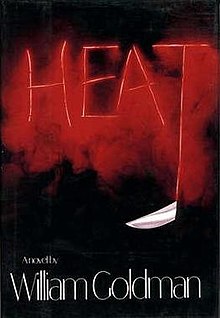 First edition | |
| Author | William Goldman |
|---|---|
| Country | United States |
| Language | English |
| Publisher | Warner Books |
Publication date | 1985 |
| Pages | 244 |
| ISBN | 0-446-51275-3 |
Heat is a 1985 novel by William Goldman about a soldier of fortune in Las Vegas. [1]
 First edition | |
| Author | William Goldman |
|---|---|
| Country | United States |
| Language | English |
| Publisher | Warner Books |
Publication date | 1985 |
| Pages | 244 |
| ISBN | 0-446-51275-3 |
Heat is a 1985 novel by William Goldman about a soldier of fortune in Las Vegas. [1]
The novel is about a man named Nick Escalante, nicknamed "the Mex" by his friends, who hires himself out in Las Vegas not as a mercenary or bodyguard but as a service listed in the Yellow Pages directory under "Chaperone." He eschews firearms but is particularly lethal with sharp objects.
Escalante has one ambition, which is to save up enough money so that he can move to Venice, Italy, for the rest of his life. The trouble is, Nick is a compulsive gambler.
When he comes into a large sum of money after coming to the aid of a woman friend who has been physically abused in a Vegas hotel suite by DeMarco, an arrogant mobster, Nick ends up losing it at the blackjack tables. He is hired by a meek millionaire named Cyrus Kinnick on the pretense of needing a bodyguard, but in actuality the small, modest man seeks lessons in how to be a tougher individual who can properly defend himself.
Goldman says he began the novel with "that main character and I had that opening sequence and I'd been in Vegas a lot and it's such a terrible place to be a compulsive gambler and try to earn a living there." [2]
According to Bruce Cook in Chicago Tribune, the quality of Goldman's novels had declined once he started writing screenplays. Reviewing Heat he said "they're not quite as good in a very peculiar way. First of all, they are written rather casually, as though shot from the hip right onto the page. Just about all of them would have benefitted from another trip through the typewriter--in about the same way that most screenplays would. They are somewhat skeletal in form, reduced to dialogue, abbreviated narrative and a twitchy interior monologue that reads like some kind of high-speed Socratic Q & A...., they seem like screenplays written for the book market." Cook argued Heat was "constructed as a screenplay is, in sequences rather than real chapters. In fact, there is a wonderful bit of misdirection, an illusion created, in the novel's first two sequences that is pure movie magic." Cook did say that while the book may "not be literature, may not even be a novel properly speaking, but as entertainment it is cotton candy all the way." [3]
The Philadelphia Inquirer said "While the book is propelled by action and snappy dialogue, it is the way Goldman reveals his characters, slowly adding dimension to their personalities, that makes Heat a superior novel. "
David Mamet in the New York Times wrote "Goldman is a master storyteller and has done a master's trick. He has made us wish for ourselves the same thing the protagonist wishes for himself. In Heat it is this: to live forever in the safe and magic world he has created – the world of Friendly Hookers; of Roxy, the waitress of table 75; of honorable gangsters; wealthy benefactors; sneering toughs whose faces soon will be ground in the dirt, and interesting friends who will be true to us till death." [4]
The book became a best seller. [5]

David Alan Mamet is an American playwright, filmmaker, and author. He won a Pulitzer Prize and received Tony nominations for his plays Glengarry Glen Ross (1984) and Speed-the-Plow (1988). He first gained critical acclaim for a trio of off-Broadway 1970s plays: The Duck Variations, Sexual Perversity in Chicago, and American Buffalo. His plays Race and The Penitent, respectively, opened on Broadway in 2009 and previewed off-Broadway in 2017.

William Goldman was an American novelist, playwright, and screenwriter. He first came to prominence in the 1950s as a novelist before turning to screenwriting. Among other accolades, Goldman won two Academy Awards in both writing categories—once for Best Original Screenplay for Butch Cassidy and the Sundance Kid (1969) and once for Best Adapted Screenplay for All the President's Men (1976).
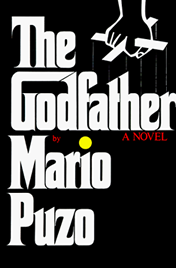
The Godfather is a crime novel by American author Mario Puzo. Originally published in 1969 by G. P. Putnam's Sons, the novel details the story of a fictional Mafia family in New York City and Long Island, headed by Vito Corleone, the Godfather. The novel covers the years 1945 to 1955 and includes the back story of Vito Corleone from early childhood to adulthood.
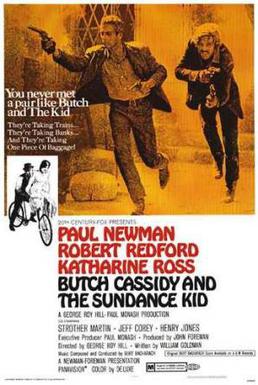
Butch Cassidy and the Sundance Kid is a 1969 American Western buddy film directed by George Roy Hill and written by William Goldman. Based loosely on fact, the film tells the story of Wild West outlaws Robert LeRoy Parker, known as Butch Cassidy, and his partner Harry Longabaugh, the "Sundance Kid", who are on the run from a crack US posse after a string of train robberies. The pair and Sundance's lover, Etta Place, flee to Bolivia to escape the posse.
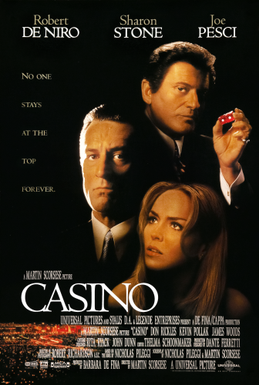
Casino is a 1995 epic crime film directed by Martin Scorsese, adapted by Scorsese and Nicholas Pileggi from the latter's nonfiction book Casino: Love and Honor in Las Vegas. It stars Robert De Niro, Sharon Stone, Joe Pesci, Don Rickles, Kevin Pollak, and James Woods. The film was the eighth collaboration between director Scorsese and De Niro.

The Gambler is a 1974 American crime drama film written by James Toback and directed by Karel Reisz. It stars James Caan, Paul Sorvino, and Lauren Hutton. Caan's performance was widely lauded and was nominated for a Golden Globe.

Nicholas Pileggi is an American author, producer and screenwriter. He wrote the 1985 non-fiction book Wiseguy and co-wrote the screenplay for Goodfellas, its 1990 film adaptation, for which he received a nomination for the Academy Award for Best Adapted Screenplay.
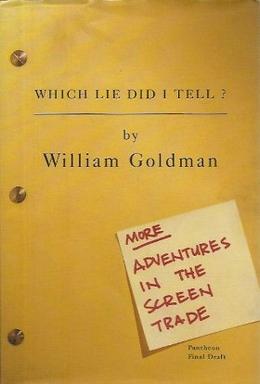
Which Lie Did I Tell?: More Adventures in the Screen Trade is a work of non-fiction first published in 2000 by novelist and screenwriter William Goldman. It is the follow-up to his 1982 book Adventures in the Screen Trade.

Soldier in the Rain is a 1963 American comedy buddy film directed by Ralph Nelson and starring Jackie Gleason and Steve McQueen. Tuesday Weld portrays Gleason's character's romantic partner.
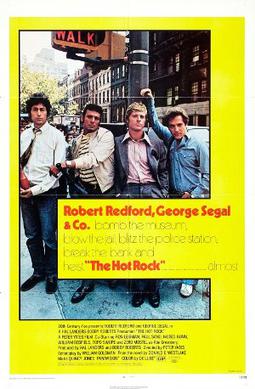
The Hot Rock is a 1972 American crime comedy-drama film directed by Peter Yates and written by William Goldman, based on Donald E. Westlake's 1970 novel of the same name, which introduced his long-running John Dortmunder character. The film stars Robert Redford, George Segal, Ron Leibman, Paul Sand, Moses Gunn and Zero Mostel. It was released in the UK with the alternative title How to Steal a Diamond in Four Uneasy Lessons.

Magic is a psychological horror novel written by William Goldman. It was published in the United States in August 1976 by Delacorte Press. In 1978 Richard Attenborough directed a feature film adaptation of the story that starred Anthony Hopkins and Ann-Margret.
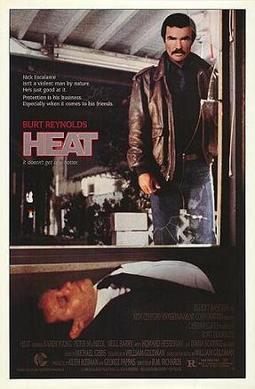
Heat is a 1986 American neo-noir dramatic action thriller film about an ex-mercenary working as a bodyguard in Las Vegas. The film was written by William Goldman, based on his 1985 novel of the same name. Heat was directed by Dick Richards and Jerry Jameson. The film stars Burt Reynolds, Karen Young, Peter MacNicol, Howard Hesseman, Neill Barry and Joseph Mascolo.
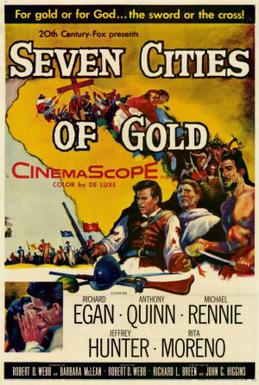
Seven Cities of Gold is a 1955 American historical adventure film directed by Robert D. Webb and starring Richard Egan, Anthony Quinn and Michael Rennie, filmed in DeLuxe Color and CinemaScope. It tells the story of the eighteenth-century Franciscan priest, Father Junípero Serra and the founding of the first missions in what is now California. The screenplay is based on the 1951 novel The Nine Days of Father Serra by Isabelle Gibson Ziegler. The tag line of the film was "This is the story of the making ...and the forging...of California...when men chose gold or God...the sword or the Cross".
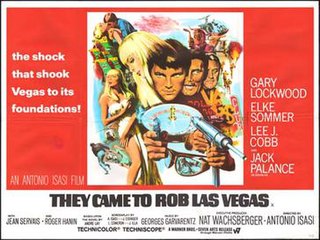
They Came to Rob Las Vegas is a 1968 crime film directed by Antonio Isasi-Isasmendi and starring Gary Lockwood, Elke Sommer, Lee J. Cobb, and Jack Palance. The screenplay concerns a crime outfit who plan a heist to rob a hi-tech truck containing $7 million in Las Vegas. Its Spanish title was Las Vegas 500 Milliones. Filming took place in California, Nevada, and Spain.

The Temple of Gold is a 1957 novel by William Goldman. It was Goldman's first novel, and launched his career.
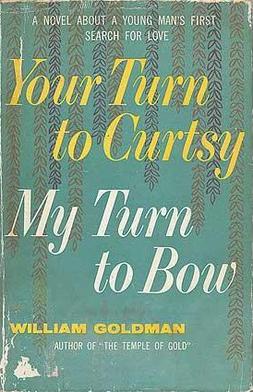
Your Turn to Curtsy, My Turn to Bow is a 1958 novel from William Goldman.

Boys and Girls Together is a 1964 novel by William Goldman. The title is taken from lyrics in the song, "The Sidewalks of New York".
Blood, Sweat and Stanley Poole is a 1961 play by American brothers and playwrights James Goldman and William Goldman near the beginning of their careers. Both had served in the army in the 1950s. The comedy is about a supply sergeant at an army post in the South.

Wild Card is a 2015 American action thriller film directed by Simon West and starring Jason Statham, Michael Angarano, Milo Ventimiglia, Dominik Garcia-Lorido, Anne Heche, and Sofia Vergara. Based on the 1985 novel Heat by William Goldman, it is a remake of the 1986 adaptation that starred Burt Reynolds. The film was released in the United States on January 30, 2015 in a limited release and through video on demand.

The Triangle of Knowledge is a writing technique to create and amplify tension in a screenplay, teleplay or stage play identified by Eric R. Williams. The Triangle represents ‘three minds’ that contain knowledge within a scene: the Protagonist, the audience, and any other Character in the scene. According to Williams, tension is created or enhanced when one of the three corners of the triangle is deprived knowledge in the scene.